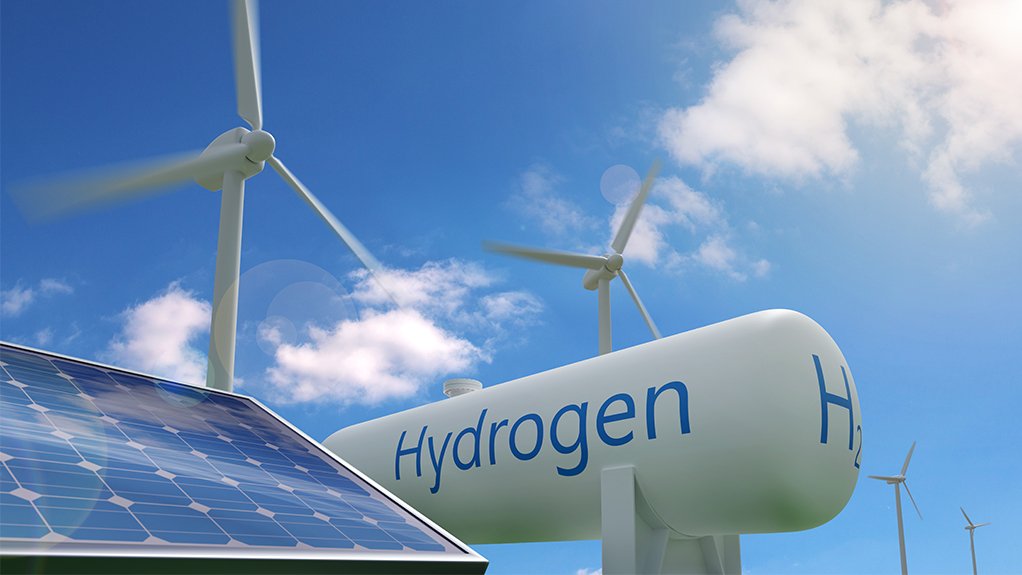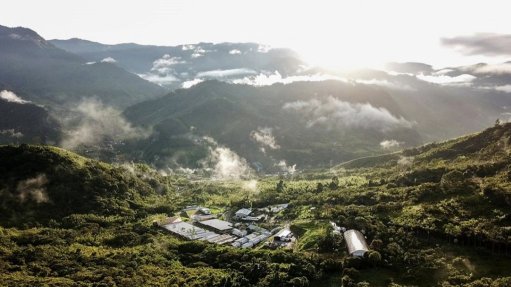South Africa needs to look internally before going global on hydrogen
As South Africa progresses its hydrogen strategies and plans as a means to mitigate climate change and to bolster security of energy supply, the country needs to look internally before embarking on global outflows.
Speaking at the Hydrogen Africa conference, held in Johannesburg from September 27 to 29, Richards Bay Industrial Development Zone Company COO Muze Shange said that amid the conversations surrounding hydrogen developments and exports there was a need for focus around South Africa’s own needs and its own demands.
Expert speakers across the industry and world convened at the conference on Thursday to unpack the hydrogen economy, the opportunities and challenges and the potential for African – and global – trade of an emerging industry that could bring about significant economic gains and create thousands of jobs.
Discussions were held on the advancement of the global hydrogen economy and market, hydrogen certification and standardisation, cross-border and global hydrogen trade markets and various regulatory frameworks.
Hydrogen can play a pivotal role in driving Africa’s energy transition and unlock a new era of sustainable development.
However, collaborative leadership is required to seize the opportunity presented by hydrogen, Shange said, noting that such leadership would allow the country to drive hydrogen demand and growth, as well as various key initiatives toward cross-border and global trade markets.
However, before that, he said, there was a need to address the stubborn issues that face South Africa currently, as he did not believe that a proper assessment of South Africa’s needs and demands had been undertaken.
“I do think that the conversation ought to firstly understand our own needs and understand our own demand, but also to say do we really have the kind of infrastructure that can support these developments?
“We might not even get to a point of developing all these plans, policies, infrastructure and incentives that are required to drive hydrogen if we are not able to at least, at a minimum right now, have security of energy supply,” Shange said.
There were opportunities, he said, referencing the queues of diesel trucks around the Port of Richards Bay, for conversion and deployment of hydrogen for mobility, as well as the use of underused pipelines and infrastructure that could be leveraged and maximised before building new infrastructure.
“[Another] case in mind is the issue with regards to Transnet. We do believe that all the conversations that we are having here will require that we have an efficient Transnet that is able to deliver on its mandate,” he said.
Citing the Richards Bay Industrial Development Zone Company’s own projects, he said that the company was ready to proceed on some projects; however, it would depend on how quickly Transnet was able to deliver, for example, on the gas terminal, and how quickly infrastructure could be built.
“I believe that similarly to the development of hydrogen, it will be about the pace at which we are able to develop the infrastructure that is required.
“If you look at the bulk storage, rail, pipelines and ports infrastructure, it does appear to me that this could not be an issue of Transnet having to address some of these [challenges], but it is an issue that will require collaborations among different stakeholders.
“Let us recognise that we ought not to move forward before we can complete what we had planned to complete. I do believe that there are certain projects that we must be able to pursue as the country that gets our house in order, gets our energy security right and gets communities to participate so that we can be able to balance the energy triangle.”
He further noted that one of the most important aspects of the energy triangle, economic development and growth, was the issue of access.
“We are sitting in the rural areas of KwaZulu-Natal with people that still do not have access to basic energy services. We just cannot afford right now to have a conversation that does not address our immediate needs.”
Further, despite many renewable-energy projects implemented since Bid Window 1 of the Renewable Energy Independent Power Producer Procurement Programme, and the spending of billions of rands, South Africa continued to lag behind in the industrial development that can drive employment and economic growth.
“What kind of lessons have we noted in our energy transition so far? What kind of leadership have we observed in our energy transition thus far? With [even] the best renewable energy programmes in the world, it is possible that we could have missed some aspects to be able to improve. Why, as a country, [do] we remain the biggest consumer of energy technology and imports from other countries and other continents,” he commented.
He cited examples of Europe, which remained one of the largest suppliers of wind technology, such as turbines and transformers, in South Africa, while China also had a sizeable share of solar inverters and battery storage.
“We need leadership that recognises that hydrogen development and cross-border trade markets can only be achieved if the total value chain and local content are also infused,” Shange warned.
“We cannot do this alone. This requires collaborative efforts. No one organisation or country can do this. We need collaborative leadership, transformational leadership that can recognise that collaboration is a permanent feature in any development as a way of addressing social, economic and environmental factors.”
Article Enquiry
Email Article
Save Article
Feedback
To advertise email advertising@creamermedia.co.za or click here
Announcements
What's On
Subscribe to improve your user experience...
Option 1 (equivalent of R125 a month):
Receive a weekly copy of Creamer Media's Engineering News & Mining Weekly magazine
(print copy for those in South Africa and e-magazine for those outside of South Africa)
Receive daily email newsletters
Access to full search results
Access archive of magazine back copies
Access to Projects in Progress
Access to ONE Research Report of your choice in PDF format
Option 2 (equivalent of R375 a month):
All benefits from Option 1
PLUS
Access to Creamer Media's Research Channel Africa for ALL Research Reports, in PDF format, on various industrial and mining sectors
including Electricity; Water; Energy Transition; Hydrogen; Roads, Rail and Ports; Coal; Gold; Platinum; Battery Metals; etc.
Already a subscriber?
Forgotten your password?
Receive weekly copy of Creamer Media's Engineering News & Mining Weekly magazine (print copy for those in South Africa and e-magazine for those outside of South Africa)
➕
Recieve daily email newsletters
➕
Access to full search results
➕
Access archive of magazine back copies
➕
Access to Projects in Progress
➕
Access to ONE Research Report of your choice in PDF format
RESEARCH CHANNEL AFRICA
R4500 (equivalent of R375 a month)
SUBSCRIBEAll benefits from Option 1
➕
Access to Creamer Media's Research Channel Africa for ALL Research Reports on various industrial and mining sectors, in PDF format, including on:
Electricity
➕
Water
➕
Energy Transition
➕
Hydrogen
➕
Roads, Rail and Ports
➕
Coal
➕
Gold
➕
Platinum
➕
Battery Metals
➕
etc.
Receive all benefits from Option 1 or Option 2 delivered to numerous people at your company
➕
Multiple User names and Passwords for simultaneous log-ins
➕
Intranet integration access to all in your organisation





















